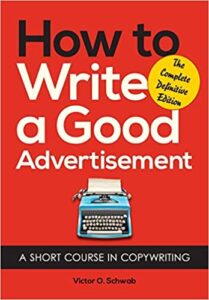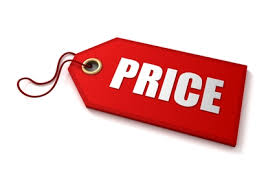SEO is an important strategy for increasing your online presence and getting traffic from search engines. But with so many changes being made to Google’s algorithms, and with so many different strategies being pushed by the experts, it can be hard to know where to start.
Does link building still work? Should you be spending a lot of time on keyword research?
Here is a list of six things you can do to boost your SEO results.
1. Write for humans, not search engines
Gone are the days where SEO involves writing with the search engines in mind rather than the people that will read your blog.
It used to be considered good practice to write your content for the search engines in order to appease the Google gods and get your content on the first page. But with significant improvements in the way Google’s algorithm works, that’s no longer the case.
Google and other search engines like Bing prefer content that is written for humans, not for algorithms. Creating content that is reader-friendly, and which adds value is the main requirement for getting your content ranked well.
Stop worrying about creating content around certain keywords or keyword stuffing. Write naturally and include relevant keywords only where and when appropriate. The better the experience you can create for your readers, the higher Google and the search engines will rank your content.
If you write valuable content then the chances of your readers sharing that content on social media, or of other blogs linking to it will increase naturally.
2. Speed up your site by removing anything unnecessary
Your page loading speed is a critical factor in your overall SEO score. People want things fast nowadays, especially when it comes to their online experience.
Having a site that takes too long to load can mean losing customers and will lead to a high bounce rate. If Google notices that people click off within seconds of clicking through to your site, they will hold that against you.
Try speeding up your site by removing anything unnecessary which slows your site down. If you’re using a CMS like WordPress, then make sure you remove any inactive plugins and themes that you have on your site. If they are not being used and are outdated they could be slowing your site down significantly.
If you have a lot of images on your site then try using an image compression plugin to compress the size of those files and improve load time.
3. Link to other sites with relevant content
If you want to grow your blog and readership then it’s important to link to other blogs within your market. The more you link to trusted sites within your niche, the more likely it is that they will link back to you.
People often hesitate to link to other blogs because they want to keep their readers on their own site. But this is a negative way of thinking. Instead of thinking like that, your should keep your readers front of mind when it comes to linking. If you are writing on a particular topic and there’s some cool information that you think your readers will benefit from, then add a link to it.
Your readers will get more value from you if you can demonstrate your willingness to point them in the right direction, even if that means linking to other sources of information or authority figures in your market.
4. Write unique meta descriptions
Meta descriptions are what people see when Google shows your page on SERPS. They are the snippets of information directly under the clickable link or headline of your search result. Meta descriptions are normally paragraph-long descriptions of your content or page, or they can be excerpts from that page.
Effective meta descriptions should contain one or more of your main keywords, but most importantly they should be useful and compelling enough so that the user knows what they expect to see when they click on your link.
A good meta description can give you a higher click-through rate than even those who are ranking in higher positions on the search results page. You should avoid using the same meta description for multiple pages. Instead, make your meta descriptions unique for each page.
You should consider your meta description to be just as important as your headline – it’s a chance to grab attention and persuade people to click on your link to read further.
Check out our post on how to write effective headlines for similar tips that can be used to write your meta descriptions.
5. Include the right keywords in your images
People search for images using keywords, so it’s important that you optimise the images on your site. The best way to do this is by using relevant keywords as the image title.
If you have an image of a brown puppy, then you should save the image file name as “brown puppy” and also title it when you upload it to your site. It’s often quite easy to get your images ranked for keywords, so take advantage of this by using the right keywords and driving traffic to your site via image search.
6. Have an easy-to-read URL structure
The URL of a page is the unique address of that page which gets indexed by the search engines. In order to have URLs optimised for the search engine bots you should make them easy to read, relevant, and short.
Using a shortened version of the page’s name is a good way to go. Avoid using numbers in your URLs as these look messy and won’t make any sense to your readers. e.g. www.fullsuitemarketing.com/article/98765
If you are publishing content that you want to be evergreen and that you may update in the future, then you should avoid having the publication date in the URL.
Keep your URLs simple, tidy, and easy to read.
Conclusion
So there you have 6 easy tips that you can start implementing straight away to improve your SEO.
If you start to use these tips you’ll start creating better content that is reader-focused and not search engine focused, thus giving your readers a better experience of your site.
When you create useful and valuable content people will start to share your content on the social platforms, and you’ll have more people willing to link to your blog, giving you more link juice.
You’ll start to drive more traffic to your site organically and will improve your domain authority ranking over time.




